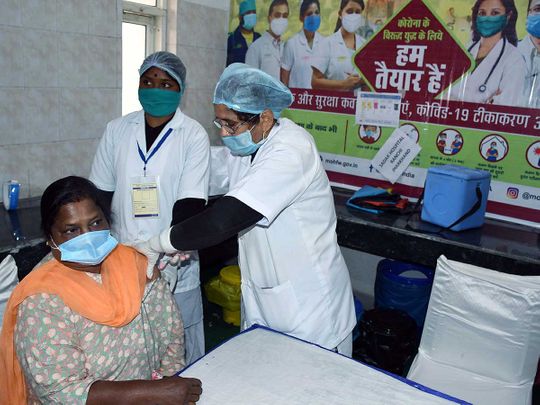
Patna: An expert committee has warned the third wave of COVID-19 may infect more than 700,000 children, including newborns up to the age of 18 in the eastern Indian state of Jharkhand.
A team of health experts has suggested setting up paediatric intensive care units (PICU) in all district-level hospitals and arranging for ventilators, high flow nasal cannula and Continuous Positive Airway Pressure facilities. It said there should be a minimum of 20 PICU beds in district hospitals and 10-bed PICU in other town hospitals to cater to the needs of the children in crisis.
It also suggested setting up high-flow oxygen beds in all community health centres, creating Covid wards at all Malnutrition Treatment Centres and reserving 50 per cent of beds for children. Further, the committee laid stress on training the doctors and nurses and getting them ready for any situation.
Authorities said the state government would require at least 50,000 beds with oxygen support for children and a large number of child specialists. “The state has only 125 child specialists and we need to train other doctors for dealing with cases of infection among children in the third wave,” Jharkhand health secretary Arun Kumar Singh has told the local media.
Meanwhile the Jharkahnd government has begun ramping up health infrastructure to battle the possible third wave of the pandemic. On Tuesday Jharkhand Chief Minister Hemant Soren inaugurated a 100-bed hospital in Bokata town and an ICU ward and pipeline-based oxygenated beds in the Latehar district.
At the same time, the Jharkhand government has started efforts towards building health corridors so that every person can get better health facilities. “This concept of health corridor will not be limited only to the COVID-19 epidemic but will also prove to be effective for treatment of other diseases prevalent in the rural areas,” chief minister Soren said.
Last month, the government also organised a webinar to seek guidance from experts and doctors in tackling the possible third wave. The government is particularly concerned over the report that about 43 per cent of children in the state are anaemic. Keeping in view this situation, the state government has now planned to also provide pulses, oils and other nutrients to the poor population from the Public Distribution System along with rice.








